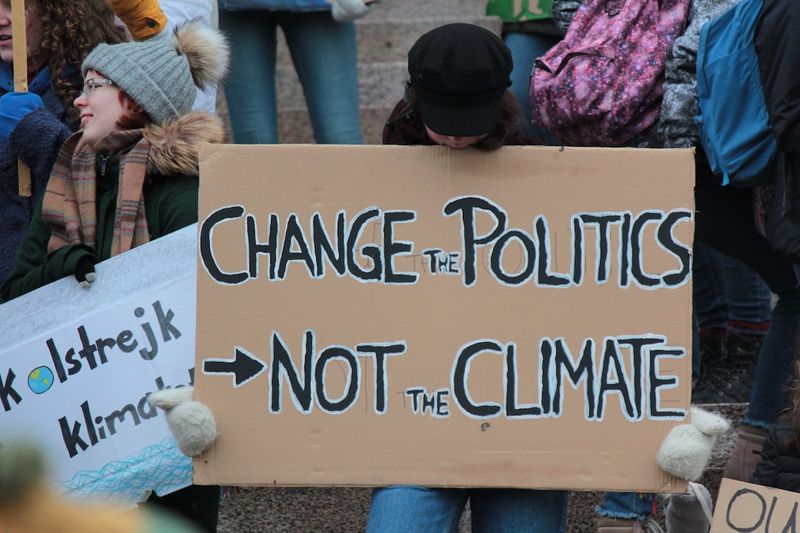Urgent Climate Action: Prosperity or Penury?
The Intergenerational Report’s Alarming Findings
The release of the Intergenerational Report has undeniably highlighted the critical importance of urgent climate action. According to the report, a two-degree increase in global temperatures is predicted to have severe repercussions on Australia‘s economy, particularly in sectors such as productivity, agriculture, and tourism. This looming threat calls for a response that goes beyond the federal government’s current emissions reduction target of 43 percent on 2005 levels by 2030.
The Economic Imperative of Climate Change
Economist Nicki Hutley, a climate councillor, stresses that climate change is not just an environmental concern but also an economic imperative. The Intergenerational Report reveals that some of Australia‘s most crucial economic sectors will be adversely affected by climate change. Losses in productivity, agricultural production, and tourism demand, coupled with increased costs from extreme weather disasters, are projected to result in economic losses reaching hundreds of billions of dollars.
The dire consequences outlined by the Treasury’s estimates do not even account for the significant costs associated with health and mortality, which are among the most substantial climate-related costs. Therefore, the choice facing Australia is crystal clear: either take immediate climate action or suffer significant economic repercussions.
The Urgent Need for Action
Chief Climate Councillor Professor Tim Flannery emphasizes the importance of climate change within the context of the Intergenerational Report. He asserts that climate change dwarfs all other concerns presented in the report and that without addressing it, nothing else matters. The clock is ticking, and this report serves as a wake-up call to urgently tackle climate change.
This make-or-break moment demands a robust response and a commitment to leave a positive legacy for future generations. Australia must set much stronger emissions reduction targets for 2035, surpassing the current 43 percent reduction proposed for 2030. Governments at all levels must rally together to drastically cut emissions and cease the extraction and burning of fossil fuels in the coming decade.
Editorial: The Cost of Inaction
Taking into account the Intergenerational Report’s findings, it is imperative that Australia acknowledges the immense cost of inaction on climate change. Failing to address this existential crisis carries consequences that extend far beyond the environmental realm, infiltrating every aspect of society, including the economy, health, and quality of life for future generations.
By continuing to rely on highly-polluting fossil fuels and neglecting to implement sustainable energy policies, Australia risks losing billions of dollars in economic output and exacerbating the negative impacts on productivity, agriculture, and tourism. The ramifications are even more profound when considering the potential health and mortality costs associated with climate change.
Philosophical Discussion: Balancing Short-Term Interests with Long-Term Sustainability
While it is important for governments to consider short-term economic concerns, there comes a time when the long-term sustainability and well-being of a nation must take precedence. The Intergenerational Report serves as a stark reminder that our choices today will shape the legacy we leave for tomorrow. Australia cannot afford to prioritize immediate gains over the long-term stability of the environment and economy.
A Call to Action for Policy Planning
The urgency of the situation requires immediate action on multiple fronts. Governments need to invest in renewable energy sources, incentivize sustainable practices, and implement policies that drive the transition towards a low-carbon economy. Collaboration between policymakers, scientists, and industry leaders is crucial to laying the foundations for a prosperous and sustainable future.
Advice for Future Planning
Given the gravity of the Intergenerational Report’s findings, it is essential for Australia to adopt a proactive and forward-thinking approach to climate change. This requires comprehensive and ambitious policies that aim to limit global warming to 1.5 degrees, rather than the insufficient target of 43 percent emissions reduction by 2030.
By embracing renewable energy, investing in sustainable infrastructure, promoting innovation, and prioritizing emission reduction initiatives, Australia can position itself as a global leader in climate action. Doing so will not only mitigate the risks associated with climate change but also unlock opportunities for economic growth, job creation, and improved quality of life for all Australians.
In conclusion, urgent climate action is not just a matter of environmental responsibility; it is an economic imperative. The Intergenerational Report emphasizes the substantial economic consequences Australia faces if immediate action is not taken to combat harmful climate change. The time for rhetoric and half-hearted commitments has passed. A resilient and prosperous future depends on the bold decisions we make today.
(ENDS)
Please contact:
Zerene Catacutan on 0438 972 260 or zerene.catacutan@climatecouncil.org.au
Jane Gardner on 0438 130 905 or jane.gardner@climatecouncil.org.au
The Climate Council is a community-funded climate change communications organization in Australia. Founded in 2013, it provides authoritative and evidence-based advice on climate change to journalists, policymakers, and the wider Australian community. For more information, visit climatecouncil.org.au or follow them on social media: facebook.com/climatecouncil and twitter.com/climatecouncil.
Keywords: Climate Change, Australia, Intergenerational Report, Environmental Policy, Sustainability, Renewable Energy, Carbon Emissions, Climate Action, Policy Planning, Future Generations.

<< photo by Tania Malréchauffé >>
The image is for illustrative purposes only and does not depict the actual situation.
You might want to read !
- “Republicans at Odds: Trump, Abortion, and Climate Heat Up the 2024 Primaries”
- “Scorching Skies: Unveiling Colorado’s Unrelenting Heatwave of 2023”
- Scorching Reality: Australia’s Future Dominated by Extreme Heat
- The Rise of the Women’s W-League: Unveiling Sam Kerr’s Staggering Salary
- The New Era of Female Football: Unveiling Sam Kerr’s Jaw-Dropping Pay Packet
- “The Astonishing Earnings of Sam Kerr: A Breakdown of Australia’s Football Star’s Record-Breaking Salary”
- “India’s Chandrayaan-3: A Remarkable Mission Propels India into Space History”
- Australian Education: Uncovering the NAPLAN Surprise Charade
- “Predicting the Showdown: KSI vs Tommy Fury and Logan Paul vs Dillon Danis. Grab Your Ringside Seat for the Live Updates!”
- “Balexco and Kanoo Cleanmax Join Hands for a Renewable Revolution Down Under”
- AGL secures groundbreaking wind farm deal – Powering the Future
- Greta Thunberg: Climate Activist Charged for Oil Port Blockade in Sweden




